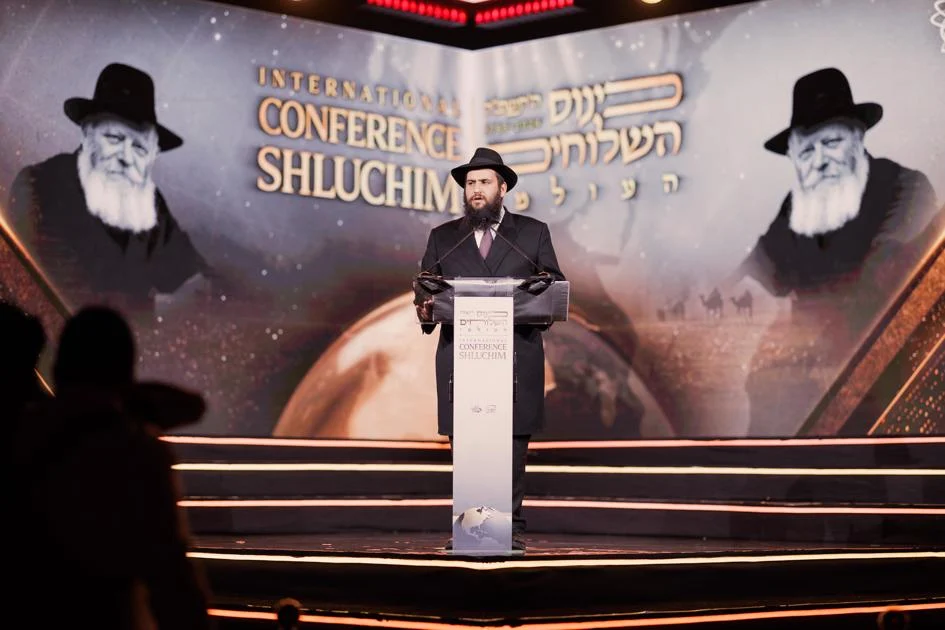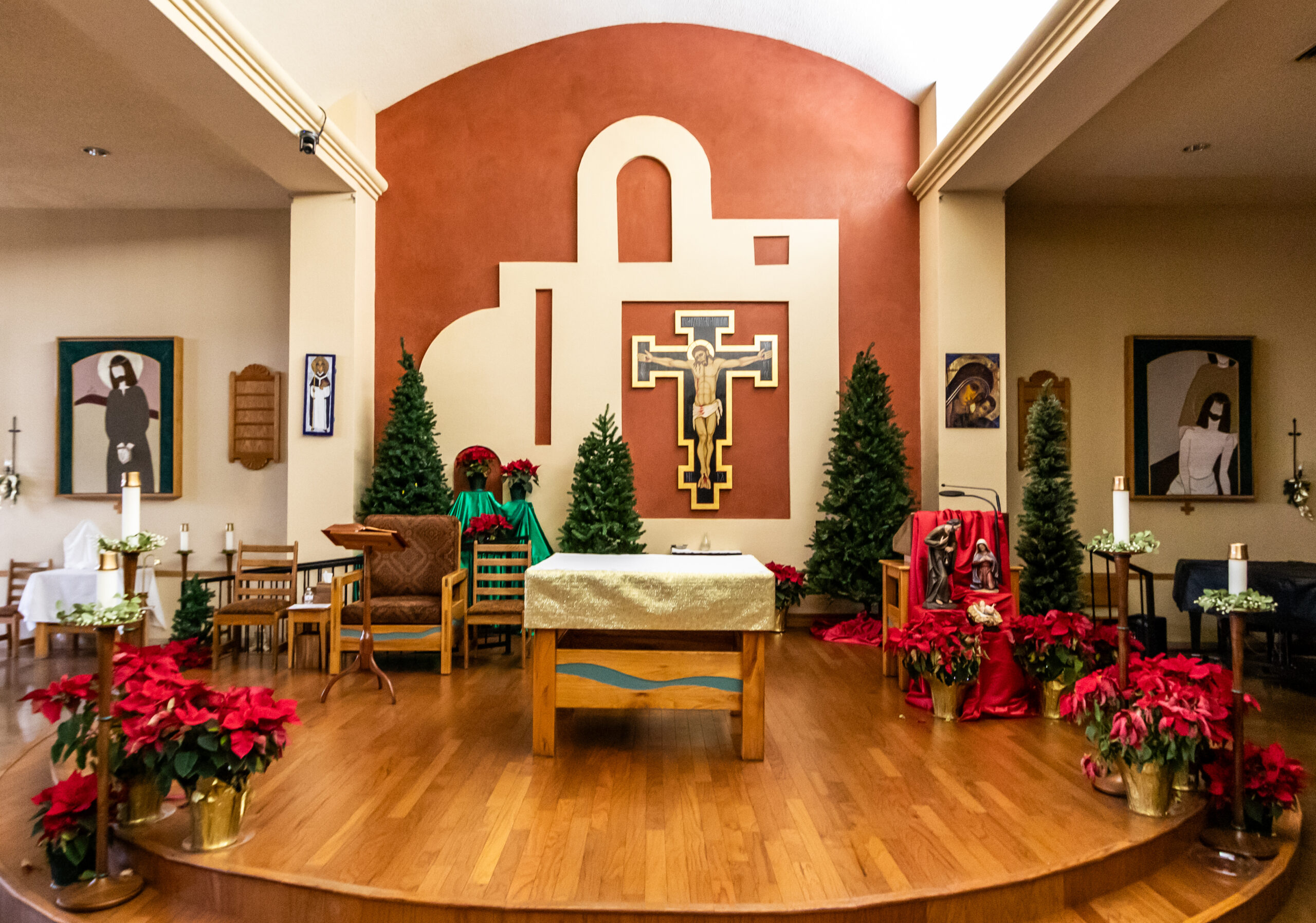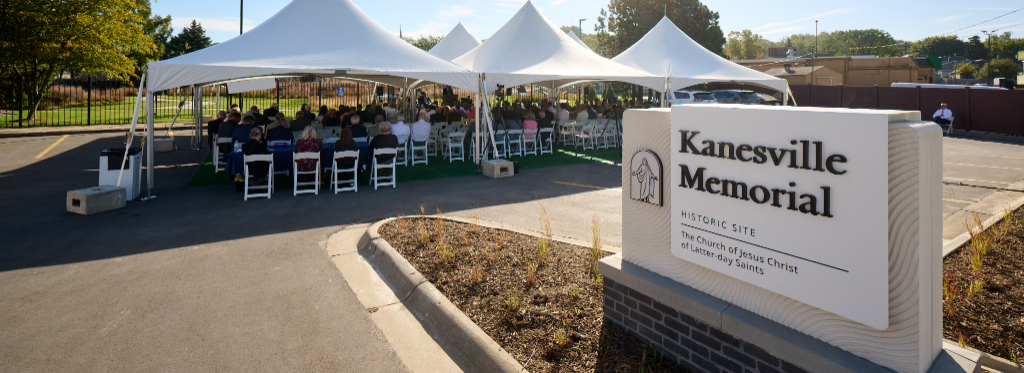Largest rabbinic gathering hits defiant culmination.
From Chabad – EDISON, N.J.—Hope and unity in the face of all difficulties was the theme of the gala banquet of the 41st International Conference of Chabad-Lubavitch Emissaries, which brought together 6,500 rabbis and lay leaders from more than 100 countries and all U.S. states.
The gala marks the conclusion of the gathering, also called the Kinus Hashluchim, to which Chabad rabbis and their guests came from all over the world for four days of workshops, prayer and support. The gathering, which is the largest rabbinic gathering in the world, began in Brooklyn, N.Y., just days after they buried their colleague Rabbi Zvi Kogan, a member of the team of Chabad emissaries in the United Arab Emirates who was abducted and slain in Dubai the week before.
The program began with recollections of Kogan, his love for people, his warm smile and open heart to one and all. Kogan, his colleagues told the crowd, was everyone’s big brother, his tragic loss leaving a void in the fabric of the growing Jewish community in the UAE as well as the Jewish people at large. Jews in the UAE, they explained, felt Kogan was their rabbi, their man.
“On Sunday morning, I got the call that no emissary should ever get,” recalled Rabbi Levi Duchman, director of Chabad-Lubavitch of the UAE, “notifying us that Zvi was already in the ‘World to Come.’”
The conference was then linked live by video with Kogan’s parents’ home in Jerusalem, where his family is sitting shiva, and all 6,500 gathered shared the traditional text of comfort with the family.
While mourning Kogan’s loss and commemorating his life, Duchman and his fellow Chabad emissaries proclaimed that the only response to his murder was to return to the UAE and continue the work. “It’s what Zvi would have wanted,” Rabbi Yehuda Marasow, Chabad emissary in Abu Dhabi, said.
Marasow and his colleague recalled that growing and building, even—or especially—in the face of tragedy, was the consistent call of the Rebbe, Rabbi Menachem M. Schneerson, of righteous memory. The Rebbe taught that every Jew has the power and responsibility to serve as a shining light in the darkest of the night, to that end building the emissary network from the ground up. The task? Illuminating the entire world and revealing it to be at its essence a garden of G‑d.
‘We Are Keeping the Lights On’
Six emissaries formally welcomed their colleagues to the Kinus, each of them representing another region in which Chabad operates and each speaking on the theme of Lech Lecha, G‑d’s call to the first Jew, Abraham, to “Go forth” and spread the name of the Almighty to all corners of the globe.
Rabbi Leibel Fajnland, of Chabad of Reston and Herndon, Va., spoke in English; Rabbi Shmuel Bistritzky of Chabad of Savyon, Israel, in Hebrew; Rabbi Yoel Migdal of Chabad on Campus in Buenos Aires, Argentina, in Spanish; and Rabbi Chaim Danzinger of Chabad of Rostov, Russia, who welcomed the crowd in Russian. Danzinger recalled the story of Reb Mordechai Lifshitz, a Chassid who in 1918 asked the Fifth Rebbe of Chabad, Rabbi Sholom DovBer Schneersohn, for permission to leave the city. “Who will remain here with the Jews of Rostov?” the Rebbe asked him. Indeed, Lifshitz remained in Rostov until his dying day in 1969, caring for the Jews of the city through the most difficult years of Soviet oppression. “We are keeping the lights on in our communities until the coming of Moshiach!” Danzinger declared.
He was followed by Rabbi Mendy Mottal of Beit Lubavitch Centre Siege in Paris; and Rabbi Zalman Lent representing Chabad of Ireland, who spoke in Gaelic, and announced the purchase of a new space for young professionals and college students in the heart of Dublin.
A special video presentation gave the gathered an insider’s look to the work of Chabad on the Israel’s frontlines serving Israel: Rabbi Gershon Shnur of Chabad of Ganei Tikvah spoke of serving as a shliach as a reservist in the army. Rabbi Shalom Ber Hertzel spoke of the difficulties facing Israel, and his unique role as a rabbi in the far North since the war began.
The two then took to the physical stage to lead a recitation of Tehillim psalms.
Rabbi Yehuda Krinsky, chairman of Merkos L’Inyonei Chinuch—the educational arm of the Chabad movement—then addressed the crowd via video and spoke of Rabbi Kogan and shared words of consolation to his family, and indeed the entire banquet hall that was filled with his extended family. He then thanked those serving in Israel, prayed for the release of the hostages, and highlighted that this year marked 50 years since the start of the Rebbe’s 10 Mitzvah campaigns.
Chief Rabbi of Israel Kalman Ber spoke of the great loss of Rabbi Zvi Kogan. “He left a big hole that we as shluchim need to fill,” he said. “We are now all shluchim!”
The keynote words of Torah were delivered by Rabbi Osher Deren of Cape Town, South Africa, who expanded on the conference theme of “Lech Lecha.”
Speeches were delivered in many languages at this year’s Kinus Hashluchim, none more unique than that that of Rabbi Yehoshua Soudakoff of Chabad for the Deaf Community, who after a video presentation displaying his work, took to the stage to speak in his native language: U.S. Sign Language (ASL).
“The voice you hear is not mine, but the words definitely are,” he said through an interpreter. “It is hard for a deaf person to find a place within the community. Torah and mitzvah while deaf is difficult. That is why I established Chabad for the Deaf Community.
“There are deaf Jews and Jews with various disabilities throughout the world. Let us continue our holy work to reach out to every single one of them and inspire them, just as I was once inspired,” he said to resounding applause.
First Rabbi to Andorra
A special video presentation of Maryland urologist, Dr. Brian Levin, highlighted the path he took to reconnecting with his own Judaism. Levin, who lives in the town of Owings Mills, connected with his local emissary, Rabbi Nochum Katsenelenbogen, who showed him classes on Chabad.org, thus beginning his path to increased Jewish observance. Soon he was studying Torah regularly, and at one point decided he needed to begin wearing a kippah to work.
That’s when everything changed. Seeing his kippah, his Jewish patients began talking to him about all things Jewish. He in turn chose to start asking them if they’d yet had an opportunity to do a mitzvah, from tefillin to Shabbos candles. Taking stock of the Rebbe’s injunction that every Jew has the opportunity to be an emissary themselves and impact their surroundings and started to be a shliach himself. Levin started putting tefillin on his patients.
Levin’s talk was followed by a tribute to Rabbi Moshe Kotlarksy, the energetic vice chairman of Merkos L’Inyonei Chinuch, who passed away after a lengthy illness on June 4, which brought the crowd to a standing ovation in recognition of his life and work. Kotlarsky was well-known for his role in the annual Kinus Hashluchim, directing an army of planners, staff and volunteers to ensure every detail of the massive event was perfect.
His son, Rabbi Mendy Kotlarsky, spoke in his father’s name congratulating the assembled rabbis on their work as well as invoking his father in encouraging the emissaries to do more.
A rotating circle of emissaries conducted the annual role call of emissaries in all 50 states and now more than 100 countries, Mottal, who welcomed Chabad rabbis in European countries from France to Slovakia, announced that a couple had been dispatched to Andorra, one of hundreds new locations to welcome Chabad emissaries this year. Lent announced the remaining half of Europe before Bistritzky brought the hall to a collective dance with the announcement of Israel’s 1,442 emissary couples and the rest of Asia. Danizger then announced the 209 emissaries to Russia and then the other half of Asia, culminating in the six shluchim and delegation from the UAE, before mentioning the African emissaries and those in Australasia and the Pacific.
Migdal introduced his colleagues in South America as well as the Caribbean, and North America, before Fajnland finished proceedings with the 2,383 emissaries serving in the U.S., listing all 50 states.
The crowd then broke out into dance, capping a gala that spanned the spectrum of emotions and left its participants determined to return home and do even more on behalf of Israel, Jewry and the world.



